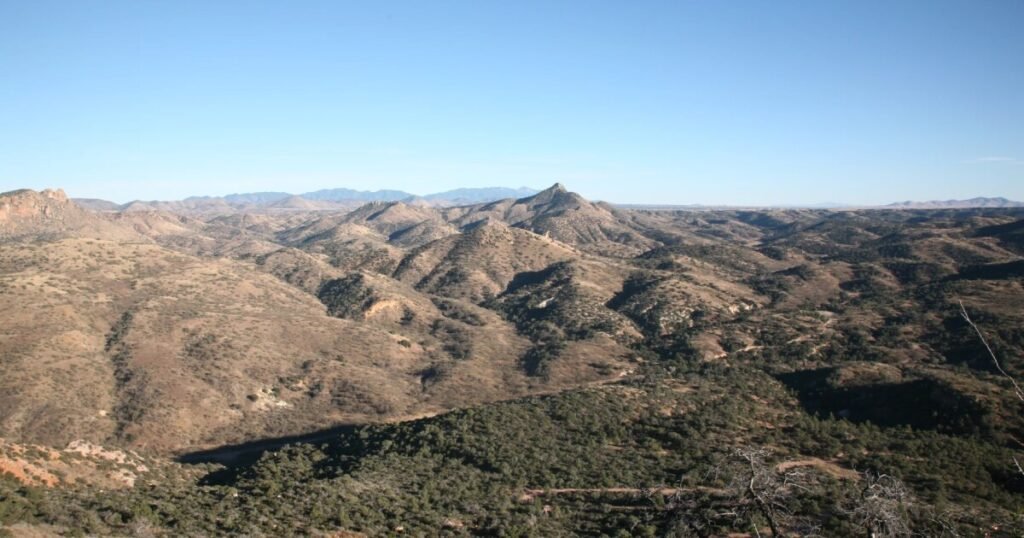Residents in Patagonia Voice Concerns Over Mining Expansion
Recently, residents of Patagonia, a small mountain town in southeastern Arizona, have been receiving troubling letters. These letters are from a mining company named South32, which is expressing concerns about the effects of their expansion on the local water supply.
Discussion Highlights
Sam Dinman: Good morning, Wyatt.
Wyatt Myscow: Good morning! Thanks for having me.
Dinman: For those who may not know, what’s Patagonia like? It’s supposed to be beautiful, right?
Myskow: Yes, it truly is. Patagonia is a charming mountain town nestled near the border. The Patagonia Mountains—known for their stunning landscapes—form a bridge between the Rocky Mountains and the Sierra Madre Mountains of Mexico. They serve as a sanctuary for various wildlife, offering them a refuge from the region’s extreme heat. You’ll find species here that are quite rare in desert areas.
When I visited last month, I met a local resident, John Nordstrom, who lives in the Coronado National Forest. He had also received one of those letters from South32. His home is deep in the forest, where I spotted wild turkeys and Javelinas in his garden. He even shared photos of black bears and cougars that visited his backyard. However, the situation seems to be changing.
Dinman: Right, so these letters—what do they contain?
Myskow: South32 is working on what they call the Hermosa Project, a mining initiative focused on silver, lead, zinc, and manganese. This project has been moving quickly, with approvals coming under both the Trump and Biden administrations. Recently, the Environmental Impact Statement was issued by the US Forest Service, suggesting that this project is likely to get the green light soon.
The main issue at hand is something known as the “cone of depression,” which often leads to local aquifers running low. This could impact homeowners significantly. Alarmingly, there are no legal restrictions in Arizona preventing businesses from doing this. South32 took the step of writing to homeowners, warning them that their well water might be at risk.
While this might seem proactive, it raises concerns among residents. They receive an email stating, “You might be fine,” but they rely on these wells for their water. If their water supply runs dry, what happens to their property values or their access to drinking water? Trust in the company is lacking for many, especially since this project has been a long time in the making, leading to uncertainties.
Dinman: And some residents are already experiencing water supply issues, correct?
Myskow: Yes, that’s true. John Nordstrom, whom I mentioned earlier, has seen his water level drop by 87%. He’s monitored his well for years, and recently, he discovered the drastic drop. He also has a stream and a pond nearby, which has typically been wet year-round, but now it’s dry. Another homeowner, who didn’t receive the letter, is dealing with an issue she described as “iron sludge.”
This problem started in 2021 when mining activities began affecting the aquifers. She began noticing this iron sludge in her well, which, coupled with rising lead levels, has made her water unsafe to drink. Initially, she was unaware of the cause, but her lead levels increased dramatically in just a few months. The Environment Protection Agency states that there should be no lead in drinking water.
Her concern ties back to the Environmental Impact Statement’s findings, which suggested that while water from the mines is treated, it still contains minerals like lead that are harmful. The theory is that when this water gets dumped in local streams, it seeps into wells, contaminating the supply.
Dinman: It sounds quite alarming. If people don’t sign the contracts South32 is providing, do they have alternatives?
Myskow: That’s the tricky part. I spoke to a groundwater expert at Arizona State University, who mentioned that outside major cities, Arizona doesn’t have a strong regulatory framework for groundwater. If someone drains a neighbor’s well, technically they’re allowed to pump as much water as they want. While they could face legal actions, that would be difficult to navigate. The recommendation for homeowners is often to sign these agreements, despite their concerns, as it might be their only viable option.







